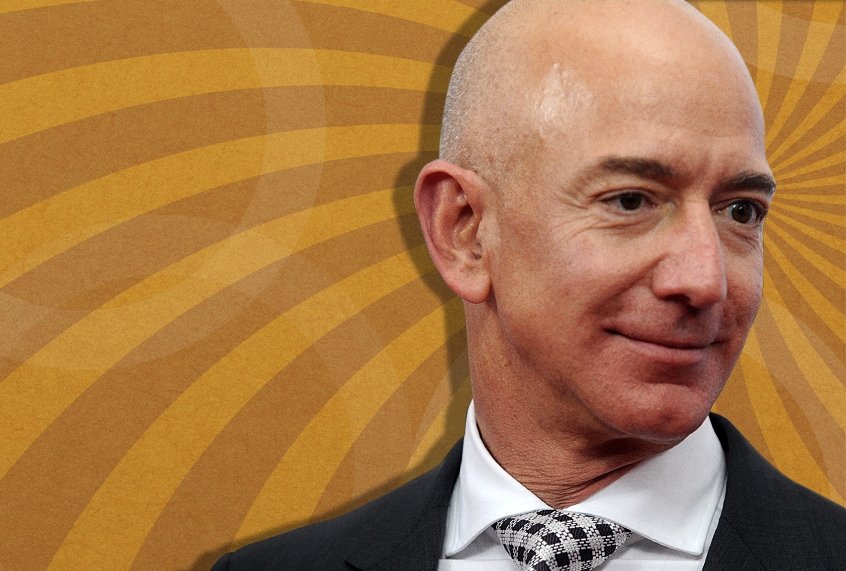CEO Jeff Bezos and his megacorporation Amazon are no strangers to politics. From Senator Bernie Sanders (I-Vt.) publicly rallying the company’s warehouse workers to demand higher wages to President Donald Trump’s ongoing Twitter attacks on the billionaire, it is hard to imagine, even on the most surface level, that a corporation that epitomizes surveillance capitalism could be the most trusted institution in America for anyone of any political stripe.
And yet, a new paper on the most and least-trusted institutions in the country based on political affiliation tells a different story.
The inaugural American Institutional Confidence Poll, published by the Baker Center for Leadership and Governance at Georgetown and the Knight Foundation, found that Democrats have the highest “institutional confidence” in Amazon. The company ranked number one — above the U.S. executive branch, press, nonprofits, universities, organized labor, state government, the FBI and more. For Republicans, Amazon ranked third among institutions they had confidence in; Military ranked first, and local police second. That means that attacks on the company from both ends of the political spectrum appear to not have soured Amazon’s reputation.
Jonathan Ladd, an author of the study and Associate Professor of Public Policy and Government at Georgetown University, told Salon he has a couple theories on why Amazon ranked so high for both parties — despite criticisms from leaders on both ends of the political spectrum. One thesis, in regards to Democrats, could be that criticisms of Jeff Bezos and Amazon — often perpetuated by Sanders — have yet to catch on with mainstream Democrats.
“I think it really is an opinion held by activists – which is relevant because that is how you get enthusiasm for certain candidates, you can move through into the general public, but so far I think it hasn’t broken through to pressure national Democrats to take a stand one way or another on Amazon,” he said. “It is not at the front of the agenda among Liberal Democrats, but it might in the future.”
Indeed, this finding points to the fundamental schism within the party — progressives, and centrist, corporate Democrats — whose affiliations can arguably now be boiled down to whether or not they think a giant corporation like Amazon is “good.” Progressives and leftists would be inclined to rally with Sanders, and see the company, like any corporation, as innately exploitative of labor, regardless of any social issues that its leaders stand up for. Centrists and corporate Democrats are less critical, and might see technology as innately progressive. This burgeoning divide among the Democratic Party has been brewing for years, and is far from smoothed-out as the midterms approach.
From an objective standpoint, Amazon’s values — like any for-profit corporation — don’t exactly line up with those of a democratic society that promotes wealth equality and opportunity for all. Jeff Bezos, who is the richest man in the world, has long been criticized by progressive activists for paying his warehouse workers low wages. Bezos increased wages to $15 an hour in October, but after the announcement some workers stated that simultaneous to the minimum wage increase, the company dropped its bonus and stock incentives programs that were meant to award senior workers. In February, the Economic Policy Institute (EPI), an American think-tank which examines the economic impact of policies and proposals, found in a report that counties that have Amazon fulfillment centers don’t observe a boost in the local economy as promised.
Diana Dwyre, a political science professor at California State University, Chico, told Salon the divide could be pose problems for the Democratic Party in the future.
“I don’t think you can say you are either a Democratic Socialist or you are a Democrat, in that respect there are a few people who are taking leading roles in democratic socialism — and yes that is great, but [if] the Democratic Party as an institution doesn’t find a different way to bring its various members of the big tent together, yeah they are in trouble,” she told Salon. “But the same can be said for the Republican Party.”
French political economist Thomas Piketty, author of the bestselling 2013 book “Capital in the Twenty-First Century,” wrote about the Democratic Party’s internal politics last spring. In that paper, Piketty argued that the mainstream Democratic Party, epitomized by Hillary Clinton’s nomination, had become a party of “elites” much like the Republican Party. Piketty’s paper provided quantitative evidence that a shift leftward within the Democratic Party platform would constitute a winning electoral strategy that could help retrieve disenfranchised working-class voters who either didn’t vote or voted for right-wing populists like Trump.
As for Republicans and their trust in Amazon, Ladd said when Trump attacks Bezos, it is usually an attack on the Washington Post, which Bezos owns, a framing that leaves Amazon out of the picture.
“Trump has not successfully gone after Bezos and connected him to Amazon,” he said.
Dwyre added Amazon’s high ranking over government institutions in both parties is overall surprising and downright “embarrassing.”
“It is embarrassing it is number one for Democrats, and overall that a corporation is more trusted than the institutions that are supposed to be trusted to run our country,” she said. “That is kind of telling.”
Dwyre added it is the public’s love for technology that could also factor into this ranking.
“It’s their friend, it’s made life better so the downside isn’t apparent to people,” she said. “The companies make it very easy for us to ignore the downsides,” such as, in the case of Amazon, small towns losing jobs because local businesses can’t compete with the tech conglomerate.


